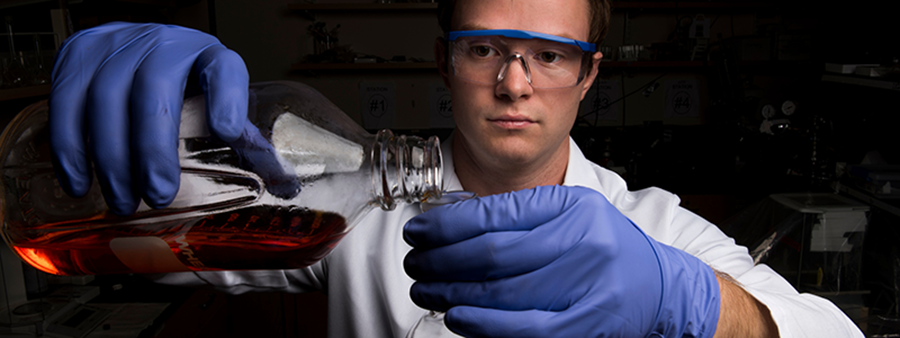Certificate

Biotechnology Certificate
The ability to manipulate the genetic content of microbial, insect, animal, and plant cells has led to a variety of commercial applications in medicine, nutrition, materials science, and the environment. New biotechnology-derived pharmaceutical products are gaining FDA approval, and the sequencing of the human genome will lead to tremendous new opportunities in disease prevention. The biotechnology certificate program gives you the skills employers are looking for to develop today's products: biochemical process engineering principles, molecular biology practices, and state-of-the-art cloning and expression techniques.
Who Should Apply?
The program is open to students with a bachelor's degree and a background in biology, chemistry, or engineering. Students who lack the necessary biology or engineering background can take primer courses during the summer.
Program of Study
Through industry-based projects and case studies, the four-course, graduate-level Biotechnology Certificate programs provide you with the fundamentals and practical considerations in the field, including construction of recombinant DNA and the production of enzymes, therapeutic proteins, vaccines and small-molecule primary and secondary metabolites. The curriculum features modern techniques for separation and purification of small and large biomolecules. In addition, production and separation case studies emphasize process economics, GMP, and QA/QC.
Two certificate program tracks are available. Both tracks require four courses.
Science Track: emphasizes molecular biology practices, and state-of-the-art cloning and expression techniques
Two core courses from the following:
- CHBE 161: Biochemical Separations (3 credits)
- CHBE 162: Molecular Biotechnology (3 credits)
- CHBE 166: Principles of Cell and Microbe Cultivation (3 credits)
- CHEM 171/172: Biochemistry (4 credits)
- BIO 105: Molecular Biology (3 credits)
- BIO 152: Biochemistry and Cellular Metabolism (3 credits)
- BME/CHBE 153: Biomaterials and Regenerative Medicine (3 credits)
- BME/CHBE 154: Tissue Engineering and Regenerative Medicine (3 credits)
One laboratory course:
- BME 175: Tissue Engineering Research Laboratory (3 credits)
- CHBE 163: Recombinant DNA Techniques (3 credits)
- CHBE 168: Biotechnology Projects Laboratory (3 credits)
One approved elective course in biology, chemistry, or chemical and biological engineering.
Engineering Track: emphasizes biochemical process, engineering principles, and state-of-the-art biotechnology production techniques
Two core courses:
- CHBE 161: Biochemical Separations (3 credits)
- CHBE 166: Principles of Cell and Microbe Cultivation (3 credits)
One laboratory course from the following:
- CHBE 163: Recombinant DNA Techniques (3 credits)
- CHBE 168: Biotechnology Processing Projects Laboratory (3 credits)
- BME 175: Tissue Engineering Laboratory (3 credits)
One approved elective course in biology, chemistry, or chemical and biological engineering.
This certificate is offered in collaboration with the Tufts Department of Biomedical Engineering and the Tufts Tissue Engineering Resource Center.
Apply:
To apply, visit the Graduate Programs website.
Tuition:
Please see the Graduate Programs website for information about current tuition rates.
For further information, contact:
Certificate Faculty Advisor:
- Emmanuel Tzanakakis: 617-627-0831
Course numbers/titles are subject to change. View course descriptions